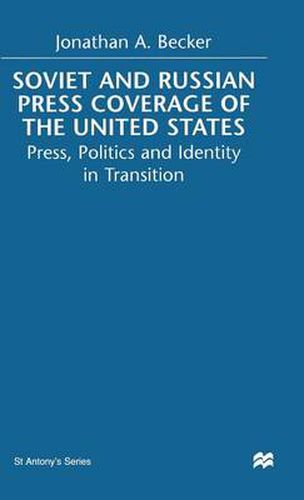Readings Newsletter
Become a Readings Member to make your shopping experience even easier.
Sign in or sign up for free!
You’re not far away from qualifying for FREE standard shipping within Australia
You’ve qualified for FREE standard shipping within Australia
The cart is loading…






This title is printed to order. This book may have been self-published. If so, we cannot guarantee the quality of the content. In the main most books will have gone through the editing process however some may not. We therefore suggest that you be aware of this before ordering this book. If in doubt check either the author or publisher’s details as we are unable to accept any returns unless they are faulty. Please contact us if you have any questions.
This text examines changing Soviet and Russian press coverage of the United States from the emergence of Mikhail Gorbachev through the re-election victory of Boris Yeltsin as Russian president in 1996. Becker argues that due to the absence of a language to support the reform strategy, the Soviet press presented positive images of its chief ideological and military opponent, the United States, as a means of supporting political, social and economic reform. He suggests that the end of the Cold War and the emergence of a more self confident Russia means that the symbolic and discursive significance of the United States for Russia has diminished.
$9.00 standard shipping within Australia
FREE standard shipping within Australia for orders over $100.00
Express & International shipping calculated at checkout
This title is printed to order. This book may have been self-published. If so, we cannot guarantee the quality of the content. In the main most books will have gone through the editing process however some may not. We therefore suggest that you be aware of this before ordering this book. If in doubt check either the author or publisher’s details as we are unable to accept any returns unless they are faulty. Please contact us if you have any questions.
This text examines changing Soviet and Russian press coverage of the United States from the emergence of Mikhail Gorbachev through the re-election victory of Boris Yeltsin as Russian president in 1996. Becker argues that due to the absence of a language to support the reform strategy, the Soviet press presented positive images of its chief ideological and military opponent, the United States, as a means of supporting political, social and economic reform. He suggests that the end of the Cold War and the emergence of a more self confident Russia means that the symbolic and discursive significance of the United States for Russia has diminished.